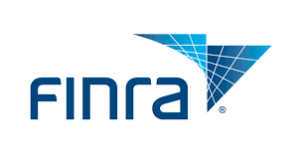- Free Consultation: (212) 897-5410 Tap Here To Call Us
FINRA CHARGES AN FA FOR STRUCTURING CASH DEPOSITS AND WITHDRAWALS

On March 11, 2020, FINRA charged an FA with structuring cash transactions in his personal bank account so as to evade reporting requirements. This case is worth a read because it highlights FINRAs commitment to pursue AML and AML-like cases.
Case in Point
In Department of Enforcement v. David R. Oakes, Disciplinary Proceeding No. 2018057755201, FINRA charged the FA with violating Rule 2010 (FINRAs catchall rule) for allegedly structuring three $9,000 deposits (total of $27,000) of currency to his personal bank account between December 27 and December 29, 2017; (2) structuring two $6,500 (total of $13,000) withdrawals of currency from his personal bank account on August 23, 2017; and (3) structuring four withdrawals (total of $21,500) of currency from his personal bank account between August 1 and August 4, 2016. According to FINRA, each of these series of transactions was for the purpose of avoiding the filing of a Currency Transaction Report.
What is Structuring?
A person “structures” money when they seek to avoid the CTR Report (Currency Transaction Report) oftentimes by reducing cash deposits below $10,000. Structuring (also known as “smurfing”) is often related to money laundering activities. But structuring isn’t limited to cash deposits; it captures cash withdrawals as well. The Department of the Treasury offer the following purposefully broad definition (31 CFR § 1010.100):
“a person structures a transaction if that person, acting alone, or in conjunction with, or on behalf of, other persons, conducts or attempts to conduct one or more transactions in currency, in any amount, at one or more financial institutions, on one or more days, in any manner, for the purpose of evading the reporting requirements…”
Backstory
Oakes was employed by Wells Fargo from 2015 to 2018. In February 2018, the firm terminated his registration and filed a Form U5 with the following allegation: “The firm reviewed multiple cash deposits made by Mr. Oakes into his personal Bank account in amounts under $10,000.” Undoubtedly, Wells Fargo’s Form U5 disclosure triggered FINRAs inquiry.
Takeaways
The takeaways for FAs are twofold: First, large broker-dealers have sophisticated surveillance systems specifically designed to capture and flag suspicious activities in affiliated bank accounts. Suffice it to say, firms are monitoring your bank accounts just as they monitor your brokerage accounts. Second, FINRA actively prosecutes cases for violations seemingly outside of FINRAs rulebook. Just because FINRA does not have a rule preventing structuring, that does not mean FINRA is without authority to pursue those cases. FINRA’s Rule 2010 is flexible and is used by FINRA to bring cases against individuals even when FINRA does not have a specific rule on point.
Herskovits PLLC has a nationwide practice defending individuals and institutions faced with regulatory investigations, including FINRA and SEC investigations. Feel free to call us for a confidential consultation at 212-897-5410.





